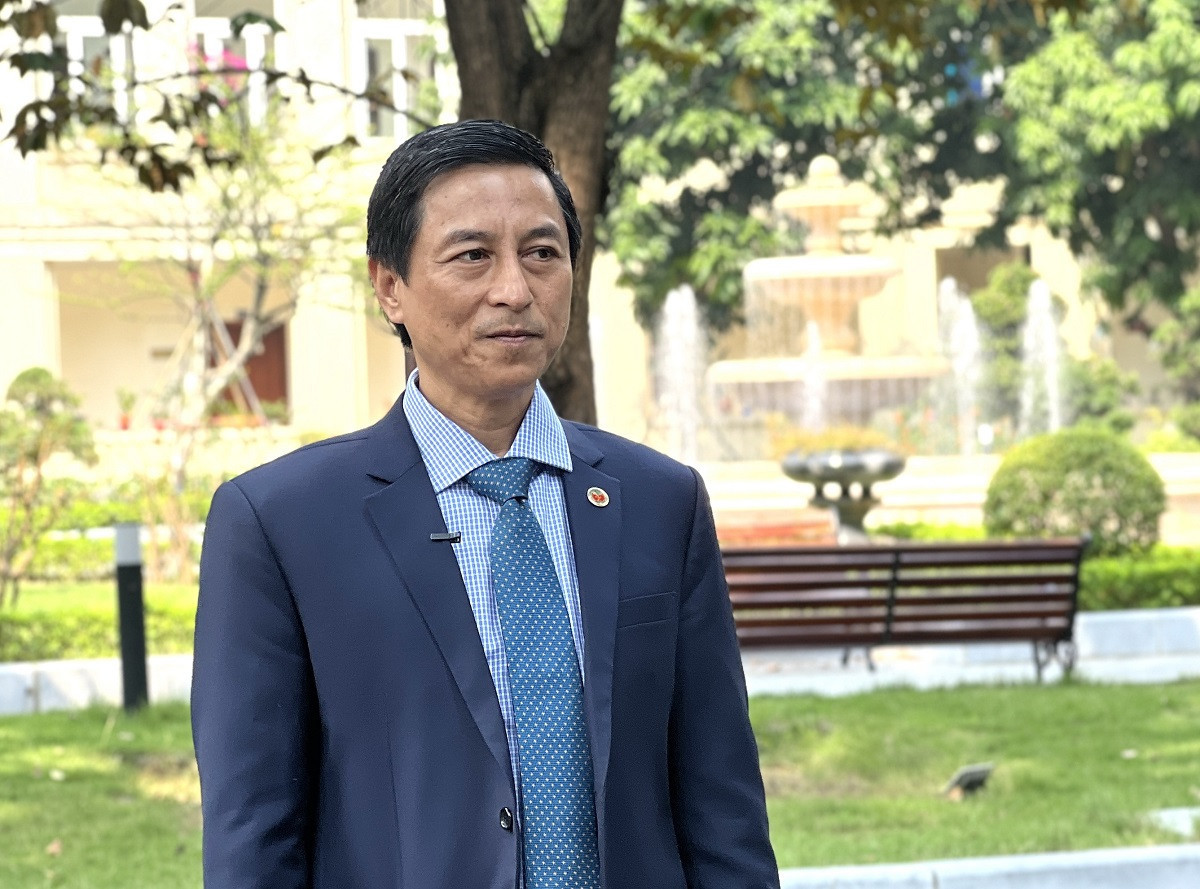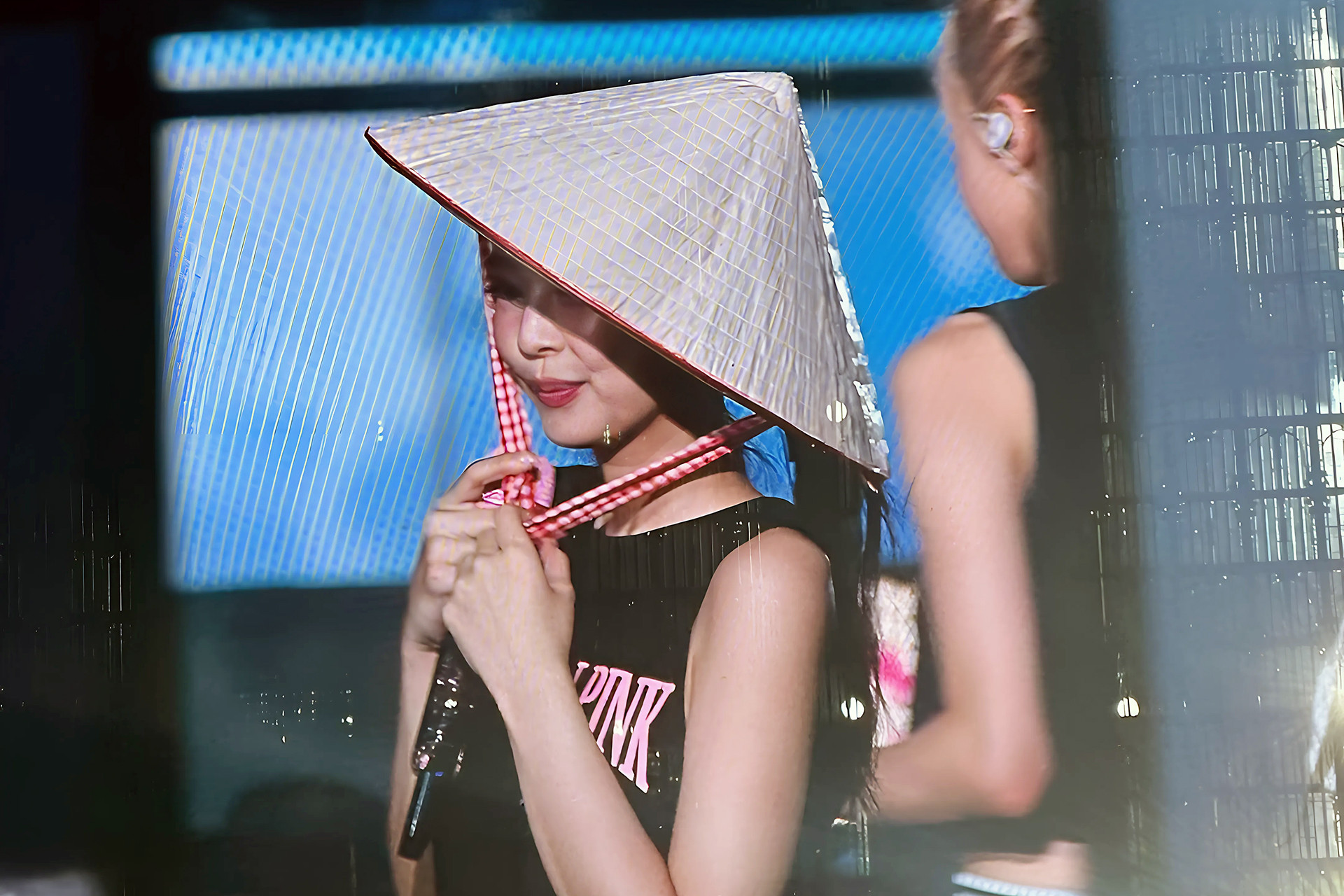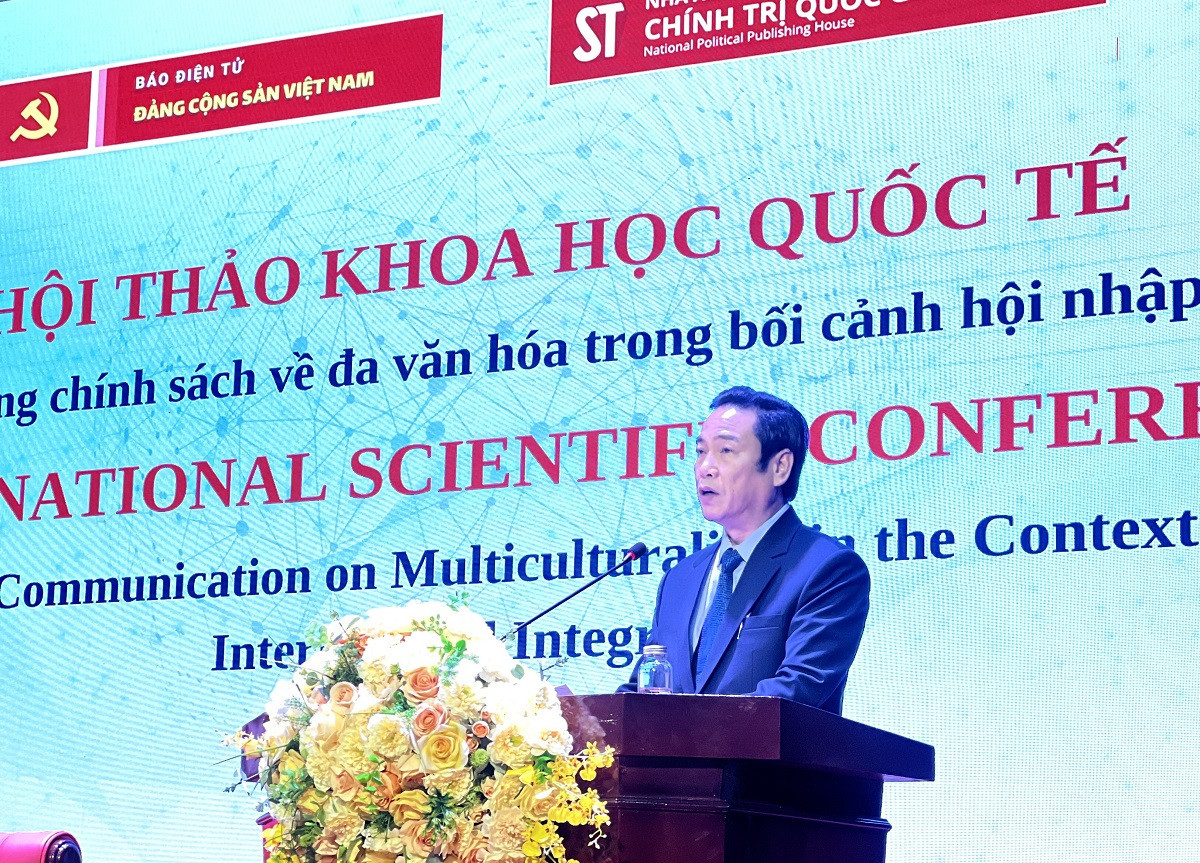Speaking Vietnamese and wearing traditional conical hats while performing in Vietnam, South Korean group BlackPink grossed over 333 billion VND ($13.66 million) after two sold-out concerts. Meanwhile, the TV series Walking Amidst the Brilliant Sky, heavily invested in, encountered strong criticism from the cultural community it portrays.
Reflecting on success and setbacks
At a recent seminar titled "Policy Communication on Multiculturalism in the Context of International Integration" in Hanoi, Associate Professor Dr. Doan Trieu Long, Director of the Political Academy of Region III, raised two compelling stories that sparked debate.
The first story revolves around the TV series Walking Amidst the Brilliant Sky, which aired on VTV3 during prime time. The show depicts the life of Pu, a Dao ethnic girl with aspirations to break free from traditional boundaries. However, the portrayal has been met with significant criticism from the Dao community for inaccuracies in depicting their attire, customs, and behavior.

“The Dao people do not wear ceremonial clothing while herding buffalo. The male character Chai dancing while wearing a woman’s yếm (an undergarment) is a gross misrepresentation, similar to a Kinh man wearing a bra in public. Additionally, a woman lighting incense in front of the family altar is forbidden in Dao customs,” Long pointed out.
Despite the film's significant investment and its plan to run for 100 episodes, the portrayal of ethnic minority life in Vietnam’s mountainous regions has faced backlash from the very community it seeks to represent.
"Why does a heartfelt film with a dedicated production team still contain such regrettable mistakes? Is the communication of these positive cultural messages truly effective?" Long questioned.
The second story involves South Korean girl group BlackPink. During their 2023 concert in Vietnam, the group spoke Vietnamese and wore conical hats, earning an overwhelming reception from young Vietnamese fans. In just two nights, they generated 13.66 million USD, equivalent to half of what Vietnam’s performing arts sector aims to achieve by 2030.

According to Long, BlackPink’s success, and that of South Korean music and culture in general, stems from multiple factors. South Korea's "soft power" in cultural promotion has been strategically communicated through various media like films, music, and television.
“The successful blending of traditional cultural preservation, cultural adaptation in a globalized world, and the open acceptance of international cultural influences are key factors in South Korea’s global cultural impact. This is a valuable lesson for Vietnam,” Long remarked.
He also highlighted that while South Korean films have dominated for decades, Vietnam once had a strong foothold in cinema during the 1980s with the “instant noodle” genre, starring actors like Ly Hung and Diem Huong, which attracted large audiences. However, the negative perception of “instant noodle films” and the lack of proper investment led to the genre’s decline.
"We were ahead at one point, but we failed to reach the finish line like our Korean counterparts," Long lamented.
Leveraging technology to enhance national soft power

Dr. Nguyen Cong Dung, Editor-in-Chief of the Communist Party of Vietnam Online Newspaper, emphasized the importance of policy communication in Vietnam’s modernization and integration efforts, particularly in enhancing its international standing and influence.
Associate Professor Dr. Pham Minh Son, Director of the Academy of Journalism and Communication, highlighted that Vietnam’s cultural diversity, shaped by 54 ethnic groups and a population of 99.5 million, is a key strength that makes the country attractive to international investors.
“Multiculturalism is a form of national soft power, and effective communication of multicultural policies is crucial in allowing this soft power to flourish,” Son noted.
He added that while multiculturalism is not yet a widely recognized concept, policy communication must be modernized to creatively and meaningfully convey messages, especially in the digital age.
“Those working in media and policy must ensure that messages about multiculturalism are communicated accurately, respectfully, and comprehensively. Diverse communication formats—from journalism to television, social media, and film—must be explored,” Son advised.
Associate Professor Dr. Le Thi Thuc, Director of the Information and Research Center at the National Political Publishing House, acknowledged that despite numerous government directives emphasizing the preservation of cultural values, results have been suboptimal.
Lack of resources and modern communication technologies is a key reason for this shortfall. Going forward, she stressed the need to invest in infrastructure and media technology that aligns with each community's unique characteristics.
"South Korea has effectively applied technology to promote multicultural communication. In Vietnam, the application of technology in policy communication is still limited. Investment in technology is crucial, but other factors like vision, leadership, and decisive action must also be prioritized," Dr. Long concluded.
Binh Minh